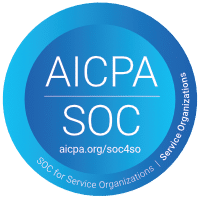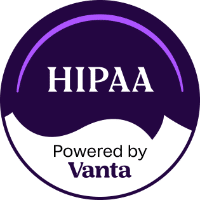Introduction: Healthcare Access for Migrants and Refugees
In the context of global migration and the refugee crisis, ensuring quality healthcare access for migrants and refugees is a pressing concern. Effective communication plays a crucial role in providing equitable healthcare services, especially for individuals who face language barriers. One small miscommunication could lead a patient and healthcare provider down the wrong medical path, and could even end in a fatality.
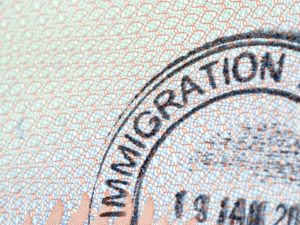
In order to combat this, qualified medical interpreters have become critical for their role in the healthcare setting. There are many benefits to interpreting services and language service providers, many of which we will discuss in this blog. By prioritizing the provision of qualified interpreters, healthcare organizations can bridge the communication gap and improve healthcare outcomes and healthcare access for migrants and refugees.
The Unique Challenges Faced by Migrants and Refugees in Healthcare
Migrants and refugees face many challenges in multiple industries, including education, employment, and government. However, one of the most significant challenges they encounter is accessing quality healthcare services. This lack of access to healthcare not only affects their physical well-being but also hinders their overall integration and ability to thrive in their new communities. By addressing this challenge, we can promote the health and well-being of these vulnerable populations and foster their successful integration into society.
Let’s take a look at the unique challenges faced by migrants and refugees, particularly in healthcare.
Cultural Differences and Misunderstandings
Cultural differences and misunderstandings pose significant challenges for migrants and refugees in healthcare settings. These individuals come from diverse cultural backgrounds with unique beliefs, norms, and practices related to health and healthcare. Without proper interpretation and understanding, there is a higher risk of miscommunication and misinterpretation of symptoms, diagnoses, and treatment options.
Culturally sensitive interpretation is crucial in bridging this gap, as it ensures that healthcare providers can accurately comprehend and respect the cultural context of the patients they serve. By addressing cultural differences and promoting effective communication, healthcare providers can better meet the needs of migrants and refugees, leading to improved healthcare outcomes and patient satisfaction.
Limited Access to Healthcare Information
One particular challenge that migrants and refugees face is the ability to even encounter consistent interpreting services. This is important because most places handling migrants and refugees all have varied interpreting services. For example, when migrants and refugees seek assistance from a health system, they may find that no one there is able to provide interpretation services. In the next place they visit, they may hope for video interpretation rather than just audio, but there may be an additional wait time. This lack of immediacy and control on the part of the migrant or refugee can further exacerbate the challenges they face, including experiencing a sense of powerlessness regarding their access to healthcare. The uncertainty of how their critical language needs will be met can lead to feelings of rejection and unwelcomeness, potentially making them less receptive to the healthcare services provided.
Unfortunately, that is not the end of their challenges with limited access to healthcare. Firstly, it is important to acknowledge that migrant populations often have limited options when it comes to accessing healthcare services in the first place. This limited availability of healthcare facilities can pose significant difficulties for these populations in terms of meeting their medical needs. Secondly, it is worth noting that areas with inadequate interpreting services are more prone to encountering such patient populations. When individuals are forced to seek medical care in places where their interpreting needs are not met, they often face immense frustration and struggle to receive even basic healthcare services. It is crucial to address these issues in order to ensure equitable access to healthcare for migrant populations.
Fear and Mistrust of Healthcare Systems
When it comes to trust in the healthcare systems, migrants and refugees have two different views. Refugees, who are part of a government-sponsored program to bring them to the United States, have funding allocated to take care of them. Therefore, they have many resources that migrants—or asylum seekers—do not. Migrants, instead, have much more mistrust in the resources and healthcare system, and sometimes, they even encounter a lot of incorrect information. With little access to support and resources, migrants are passed around from place to place with little information about where they will end up. Many times, migrants will lean on nonprofits to provide access to resources, when they have nowhere to go and no supplemental income.
In this case, especially, interpreters are crucial to make them feel welcomed and trusting in a healthcare provider. They also play a vital role in ensuring patients have the correct access to the clinic, resources, and healthcare facilities.
Absent Community
When dealing with refugees and migrants, their language needs often go beyond what is typically required for regular language interpretation. As they come from different places, they lack a supportive community due to being new to the area. Consequently, they might find themselves without access to family members, acquaintances, or alternative resources typically utilized when professional interpreting services are unavailable. Even in such situations, the absence of professionalism, transparent communication regarding private or intimate patient information, familiarity with precise medical terminology, and adequate interpreter training can leave patients dissatisfied with the service provided. Furthermore, it exposes the provider to significant legal risks.
On average, migrants’ and refugees’ needs for interpreting services are significantly higher. Their needs are also much more dynamic, with more niches and rare languages and dialects that are necessary for effective communication. For many immigrants to the United States, their primary language may be a specific dialect or regional variation rather than a broader language such as Vietnamese. These dialects are not interchangeable, which poses a challenge for interpreting providers who may not be equipped to handle a wide range of less commonly spoken languages. In many cases, healthcare practices may not even be aware of the specific language until the patient arrives at the office. This can make scheduling more difficult, especially when multiple minor languages are referred to by the same name. For example, someone may claim to speak ” Mixteco,” but what they actually mean is they speak “Mixteco de la Baja,” or “Mixteco de la Alta”, or yet another specific regional variation that requires its own specialized interpreter.

Addressing Mental Health in Migrant and Refugee Populations
Addressing mental health in migrant and refugee populations is a crucial aspect of healthcare provision. These individuals often face unique challenges and have experienced significant trauma and adversity in their journey to the United States. Therefore, interpreters will need to provide trauma-informed interpreting services. It is important for the interpreter to prioritize grief or trauma when working with these populations.
Interpreters play a vital role in ensuring effective communication between mental health professionals and these populations. It is vital to provide trauma-informed interpreting services that take into account the specific needs and sensitivities of migrant and refugee communities. By recognizing and addressing the mental health needs of these populations, healthcare providers can provide more holistic care and support their overall well-being and integration into society.
The Critical Role of Interpreters in Healthcare
Interpreters play a critical role in the healthcare industry, especially when it comes to providing care for migrants and refugees. Interpreters help bridge the communication gap by facilitating effective communication between healthcare providers and patients, creating trust and a rapport between all parties. Interpreters ensure that important medical information is accurately conveyed and understood, leading to improved healthcare outcomes. By having qualified interpreters available, healthcare organizations can ensure that migrants and refugees receive the care they need and deserve, ultimately promoting health equity and inclusivity in the healthcare system.
Overcoming Language Barriers & Best Practices
In order to overcome language barriers and ensure effective communication with migrants and refugees in healthcare settings, there are several best practices that can be implemented:
- Qualified Interpreters: It is crucial to have qualified interpreters who are proficient in both the language of the patient and the language of the healthcare provider. These interpreters should have a strong understanding of medical terminology and cultural nuances, ensuring accurate and culturally sensitive communication.
- Language Access Services: Improving patient access involves expanding the various access points from which patients can reach healthcare services. This includes access through smartphones, tablets, computers, and landlines, as well as through remote video services like Teams, Google Meet, and Zoom. By diversifying these platforms, we can ensure that patients have multiple ways to connect, improving accessibility and convenience.
- Cultural Awareness and Sensitivity: Healthcare providers should receive training on cultural awareness and sensitivity to better understand the cultural backgrounds and beliefs of migrants and refugees. This helps in fostering trust, respecting cultural differences, and delivering patient-centered care.
- Clear Communication: Healthcare providers should use plain language and avoid jargon or complex medical terms that may be difficult for patients with limited language proficiency to understand. It is important to ask open-ended questions and actively listen to ensure clear communication and comprehension.
- Visual Aids and Multilingual Materials: The use of visual aids, such as pictograms or translated materials, can enhance understanding and facilitate communication. Providing multilingual brochures, signage, and patient education materials can also support language access and patient comprehension.
- Technology: Using technology can prove advantageous in surmounting language obstacles. This encompasses mobile capabilities, reaching patients wherever they may be, and seamless video accessibility, fostering a warm welcome to patients through professional human connections. Additionally, leveraging technology properly also includes ensuring seamless access, speed, and a user-friendly experience. These elements enable providers to access the service effortlessly, allowing them to respond quickly and dynamically to patients’ interpreting needs. This swift and efficient access not only aids in accurate diagnosis and treatment but also enhances the overall patient experience.
By implementing these best practices, healthcare providers can effectively overcome language barriers and ensure that migrants and refugees receive the quality healthcare they deserve. It is essential to prioritize language access and foster a culturally inclusive healthcare environment for improved health outcomes and patient satisfaction.
Conclusion

Addressing the unique challenges faced by migrants and refugees is essential in providing equitable healthcare services. Interpreters can help navigate these challenges by providing culturally sensitive interpretation and ensuring accurate communication of medical information.
While no interpreting service can have every amenity, there are some that have many in particular that can be of more assistance for migrants and refugees. Variations in terms of regional dialects and being better at matching an interpreter for that specific dialect. For example, Jeenie is the number one on-demand interpreting service for rare and indigenous languages such as Qʼeqchiʼ, Mam, and more.
By recognizing the critical role of interpreters in healthcare and taking proactive steps to address language barriers, healthcare organizations can improve healthcare access, patient satisfaction, and overall health outcomes for migrants and refugees. It is essential to continue efforts in improving language access and fostering a culturally inclusive healthcare environment to promote global healthcare equity.




